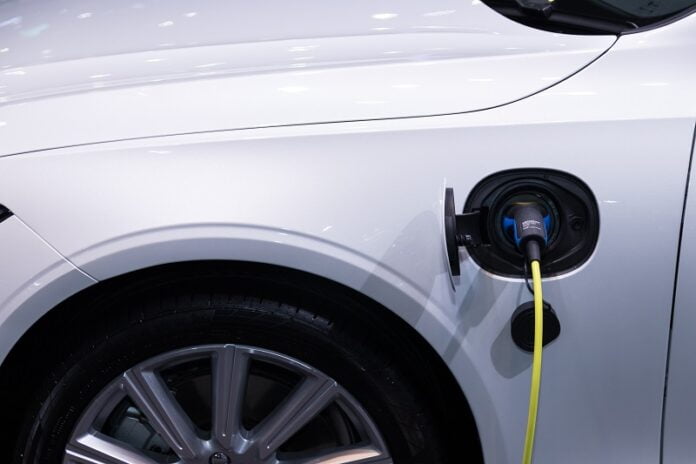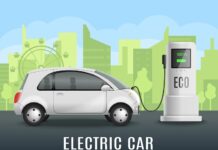As more and more people become environmentally conscious, electric cars are gaining huge popularity. However, charging an electric car may seem complicated for beginners who aren’t familiar with the process. In this guide, we’ll cover everything you need to know about charging your electric car including the different types of chargers, how long charging an electric car takes, and where to find charging stations.
Types of Chargers
There are three main types of chargers for electric cars: Level 1, Level 2, and Fast Chargers.
- Level 1: This is the most basic type of charger, and it usually comes included with your electric car purchase. It’s a 120-volt charger that you can plug into a regular wall outlet. However, these are the slowest kind of charger and are not always convenient in terms of how long they take to charge your electric car. Using a Level 1 charger, it can take up to twenty hours for your car to reach a full charge.
- Level 2: This is a faster charging option compared to a Level 1 charger. It’s a 240-volt charger and requires the installation of a dedicated circuit, which should be done by an electrician. It normally takes between four and eight hours to charge your electric car fully using a Level 2 charger, depending on the car’s battery size.
- Fast Chargers: This is the fastest charging option and the one you will often find at public charging stations. These can usually charge an electric car to 80% in around half an hour. However, it’s worth bearing in mind that not all electric cars are compatible with fast charging, so check your car’s manual or with the manufacturer first.
How Long Does Charging an Electric Car Take?
There are several factors that determine how long it takes to charge an electric car, including the size of the battery, the charger type used, and the amount of charge remaining on the battery. You can find out more in this charging times guide.
Where to Charge Your Electric Car
There are several ways that you can charge your electric car:
- Public Charging Stations: You can find public charging stations in various locations, such as shopping centre car parks, airports, public car parks, petrol stations, and more. Various apps are available, such as Pod Point, to help you find a nearby charging station for your car.
- Home Charging: You can have a Level 2 charger installed at your home, allowing you to charge your electric car faster compared to Level 1. This is an ideal option if you have a dedicated garage or driveway for parking at your home and want extra convenience.
- Workplace Charging: Many workplaces in the UK have now started offering charging stations that employees can use. If your workplace has this option, you can charge your car while you are working.
How Much Does Charging an Electric Car Cost?
The cost of charging your electric car is one important consideration to make before you take the plunge. The cost of charging an electric car can vary depending on several factors such as the type of charger used, the location of the charger, and the time of day. Some charging stations offer free charging, while others charge a fee. It’s a good idea to check the pricing policy of the charging station before you begin charging to avoid any unexpected costs.
If you are going to be mostly charging your electric car at home, then how much it’ll cost will depend on your energy tariff. You can get more information from your energy company.
Tips for Charging Your Electric Car
Here are some top tips to keep in mind for better results when charging your electric car:
- Plan ahead: Be sure to plan your route using Route4Me and find charging stops that you might need before beginning a journey. This will help you stay prepared and avoid running out of battery in the middle of traveling.
- Check your battery level: Before starting a journey, always check your battery level to make sure that you have enough charge to reach your destination or the next public charging point.
- Be mindful of charging speed: If you are in a rush and need to charge your car as quickly as possible, a fast charger is the best option. However, this can cause damage to the battery if used too often over time, so if you have more time available, a Level 2 charger is best. This helps you avoid putting too much stress on the battery.
- Be ready for cold weather: When the weather is cold, this can impact the performance of your car’s battery. Because of this, it’s important to ensure that you are prepared for when the temperature drops. You may need to be ready for longer charging times, and the battery running out of charge faster as more power is needed to keep the car warm. Pack warm clothing in your car in case you need to wait in it while it charges in the cold.
How to Extend Your Electric Car’s Range
Another important thing to consider when driving an electric car is the range. This refers to the distance that it can travel on a single charge. The range can vary widely depending on the make and model of the car, with some able to travel up to 400 miles on just one charge. However, it’s crucial to bear in mind that there are various factors that might reduce this, such as cold weather, your driving habits, and the terrain you are driving over.
You can do several things to help extend the range of your electric car. These include:
- Driving at a steady speed
- Reducing the use of heating and air conditioning
- Avoiding rapid braking and acceleration
- Using the regenerative braking feature
How to Look After Your Electric Car’s Battery
It’s essential to keep your electric car’s battery in good condition. To do this, familiarise yourself with and follow the manufacturer’s recommendations for maintaining the battery, such as avoiding undercharging or overcharging, or avoiding extreme temperatures.
The battery is one of the most important components of your electric car. To ensure it has a long lifespan, you can do the following:
- Keep your battery charged: It’s essential to avoid allowing the battery to completely run out of charge. Ideally, keep it charged to somewhere between 20-80% at all times. Charging to 100% and allowing it to drain to 0% can cause unnecessary wear and tear on the battery.
- Avoid extreme temperatures: Batteries perform best in moderate temperatures, and extreme heat or cold can lead to battery damage. It’s a good idea to park your electric car in a garage or another covered area during extreme weather conditions, if possible, as this will help avoid exposing the battery to these conditions.
- Monitor battery health: Most electric cars today come with a dashboard display that shows the battery’s remaining charge and range. Keep an eye on this to monitor battery health and look out for any sudden changes in performance that might be a cause for concern.
- Don’t fast charge too often: Fast charging is convenient, but it’s not a good idea to do it too often. This is because it can put stress on the battery and cause it to heat up, leading to wear and tear.
If you’re getting an electric car, we hope this guide has covered everything you wanted to know about batteries and charging.





